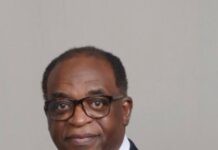 History is not destiny – Acemoglu & Robinson
History is not destiny – Acemoglu & Robinson
As flags all over the world fly at half-mast in honour of Madiba, a South African who has joined the short list of global citizens adopted and embraced by the world for their inspiring leadership, this is a good time to reflect on aspects of his life which have lessons for Nigeria as we search for a way out of our harmful political systems.
In the context of political leadership, there seems to be a general acceptance that in Nigeria we cannot get away from our history. A surprising number of Nigerians and political actors believe that the key stakeholders in Nigeria’s extractive political and economic institutions are too entrenched for any meaningful change to happen within our political system, especially not in 2015 which many also see as a possible watershed event in our political history.
The political parties are the gatekeepers for the types of people who flourish in our politics and remain one of the most critical elements in the success or failure of our governments. Lately, one party in particular, the All Progressive Congress (APC) seems to symbolize the hope for positive change. The rhetoric within APC suggests that the party wants to deliver the promise of a deepening democracy by replacing the ruling party at the center after a sixteen-year monopoly. In the name of political pragmatism, they will continue to whittle away at the Peoples’ Democratic Party’s (PDP) hold across the 36 states by absorbing as many of its powerful members as possible; lock down General Muhammad Buhari’s estimated 12 million voters by making him the presidential candidate; and splinter the support for the incumbent President in the SE with an egregious running mate from this geopolitical zone. And for the SW, the plan is to maintain the status quo with one supreme political godfather to whom everyone remains beholden.
Meanwhile, the party determined to remain in power has introduced the possibility of a national dialogue and most recently reawakened of doctrine of necessity. It is necessary that political actors rationalize their desire to continue to carve up Nigeria’s resources without any semblance of responsibility and accountability to Nigerians with the ill–conceived single tenure concept.
While it is true that any dismantling of the existing political order in favour of more inclusive political and economic institutions must be with a strong coalition of diverse stakeholders, at the heart of these strategies lies mere repetition. We are shackled by the misplaced notion of realism captured most aptly with ‘this is Nigeria’. These three words in any conversation or context signal the instant mummification of any ideas that might challenge the status quo and propagates the theory that the political actors and their inheritors can never be beaten and the only options left are to ‘join’ them.
So as oppressive, thieving, lying officials of governments all over the world including Nigeria pay hollow tributes to Mandela, here are three things from his life that are particularly pertinent to Nigerians and the tragedy of our current situation.
The first is ironically captured in the words of President Zuma, one of Africa’s leading antitheses to Mandela. In his announcement of Mandela’s death he provided a valid explanation of our almost irrational love for and attraction to Mandela, “we saw in him what we seek in ourselves’. The story of Mandela’s life sparks an understanding that we can be better and braver than we are. Instead, we hold on to our dysfunctional past and insist that it dictates the future, refusing to see that we can and must be better.
The second is the symbolism of change in tactics. Mandela’s belief that “at a certain point, one can only fight fire with fire” was what drove his armed struggle against apartheid which led to his 27 years incarceration. Yet one of the things he will be remembered for is being a man of peace, a man who forgave his oppressors and encouraged the oppressed all over the world to do the same in order to be really free. Here, we are resolute that new tactics will never work because ‘this is Nigeria’; we mirror every trait of the oppressors and cling to ethnic and religious grievances from 50 years ago (and yesterday) and still want things to improve.
The third is the understanding of limitations. Mandela was not perfect and neither is his legacy. As South African’s prepare for elections in 2014 with an incumbent President who has borrowed a leaf from the Nigerian officials’ book of kleptomaniac consumerism the fissures between blacks and whites and rich and poor are growing. While some think Mandela is partly to blame for the post apartheid structures, could the immediate outcome of the negotiations for the end of apartheid in 1994 have been different? It is to Mandela’s credit that he served one term, probably understanding his constraints and trusting that those with their hands on the baton would take the dream for South Africa farther.
If we want to fix Nigeria we must understand the limitations of the current political structures and actors. In the short term we must encourage only the right people to participate in governance and support them regardless of the emotional tugs of ethnicity, religion and self presentation and in the long term, carefully groom worthy successor leaders with education rich in the right history and free of divisionary propaganda.
As the curtains for 2013 draw for a close with the burial of Mandela, many of us are mourning more than the loss of the protagonist of an amazing and inspiring story. We mourn the squandered opportunities in our beloved country and continent, the selfish myopia of the political actors and the inability of the majority to be inspired to be something greater than what they are today… because we’ve decided that our history is our destiny.
Rest in peace Madiba.
Mourning Mandela,By Ayisha Osori
Follow Us On WhatsApp



